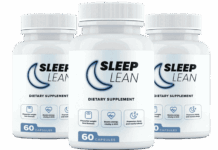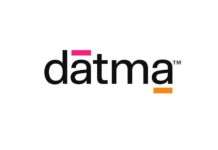Personalized nutrition refers to the practice of tailoring dietary plans to an individual’s needs rather than the general population’s. Customized nutrition plans consider an individual’s age, sex, genetics, and health objectives. More people are becoming aware that a one-fit-all nutrition plan is not feasible as everyone has different requirements and goals.
In recent times, this industry has undergone rapid growth. People’s interest in maximizing their health and well-being through personalized nutrition plans has led to more people turning to it. In 2021, the global market value of the personalized growth market was 10.39 billion dollars. This has increased to 13.86 billion dollars in 2023 and is estimated to reach 38 billion dollars by 2030.
Why Personalized Nutrition?
The principal reason for the growth of the personalized nutrition market is the benefits it provides to the individual. Here are some reasons why people prefer customized nutrition plants and supplements over traditional options:
- Health Concerns: Some clients have a specific health condition that will benefit from a personalized nutrition plan. For instance, individuals with diabetes will be looking for a low-sugar diet plan to manage their condition better. Similarly, someone with high blood pressure will be looking for a low-sodium diet to keep it under control.
- Weight Management: Personalized nutrition plans can aid individuals in managing their weight by controlling their calorie intake and diet. Personalized plans take into account age, activity level, medical conditions, and other factors. These plans also advise portion size and meal times to help clients stick to a schedule.
- Convenience: There has been an increasing trend in online education, especially in the post-covid era. More students are taking advantage of online programs such as the Lamar masters program in nutrition science. As a result, more nutritionists are available to cater to the increased demand.
- Athlete Performance: Athletes have different requirements than ordinary people. Their high physical activity means they need a balanced, high-calorie, healthy diet. Nutrition experts can develop personalized nutrition plans to help them perform optimally and avoid injuries. A customized diet plan can help athletes optimize their performance by providing the right mix of nutrients to support their training.
A personalized diet plan can help athletes enhance recovery after strenuous workouts or injuries.
- Personal Preference: Some people like the idea of personalized nutrition plans as they feel they have been explicitly customized to their needs. This can motivate them to in pursuing a healthy lifestyle and work out.
Factors Driving the Market Growth
The critical factor driving growth in the personalized nutrition market is increased patient awareness. People have started understanding the link between diet and overall personal health. As the access to the internet is expanding, people are becoming more educated about the advantages of individualized diet plans. Personalized nutrition plans can help people better manage chronic illnesses such as diabetes, obesity, and cardiac issues. As a result, demand has increased, leading to the industry’s growth.
Another factor leading to growth in the personalized nutrition sector is the development of new technologies. Advancements such as gene-based nutrition and the use of AI to create diet plans specific to an individual have yielded positive results. Research into more such technologies is ongoing. Companies are working hard to come up with technologies to help make more accurate recommendations.
The demand for healthier food also leads to this field’s growth. People are turning toward more natural and organic options. Nutrition companies are providing these alternatives, leading to an increase in their popularity.
Increased availability of personalized nutrition products and services has resulted in more people opting for them. This has been a critical factor in driving the growth of this sector.
Some Key Players in the Market
Several companies are providing personalized nutrition plans to their clients. Here are some companies that offer unique services:
- Nutrigenomix: This company offers DNA-based nutritional testing and personalized nutrition plans based on those results.
- DNAFit: This company offers DNA-based fitness and nutrition plans, including personalized meal plans and workout recommendations.
- Platejoy: This company offers personalized meal planning and delivery services based on individual dietary preferences and goals.
- One Drop: This company offers a mobile app and coaching services for managing diabetes through personalized nutrition and lifestyle recommendations. Age is one of the factors considered when creating these plans.
- WellnessFX: This company offers various health and wellness services, including personalized nutrition plans based on DNA testing and other data points.
- MyFitnessPal: This popular app and website offer personalized nutrition tracking and goal-setting tools, as well as an extensive database of food and exercise information.
Market Segmentation
The term “market segmentation” describes breaking a market into subsets of consumers with common traits or demands. In the case of the personalized nutritional market, segmentation can be done based on the following;
- Product Type: Offered products provide a valuable criterion for dividing the personalized nutrition market. Dietary supplements, functional foods, meal replacement shakes, and nutritional bars are some of the products that can be categorized as a separate segment.
- Application: The personalized nutrition market can also be segmented based on the application or use of the products. For instance, sports, weight management, clinical, children, and elderly nutrition can be considered separate segments.
- End user: Another factor in classifying the personalized nutrition industry is the type of end user who will be investing in these goods. This can either be consumers or health care professionals.
The consumer segment includes individuals who purchase nutrition products and services for their health. Healthcare professional segment includes professionals who work in the healthcare industry and prescribe personalized nutrition products and services to their patients.
Conclusion
In conclusion, the market for customized nutrition has experienced rapid expansion in recent years and is predicted to do so going forward. As more people look for custom-fit solutions to their health and diet, the market for personalized nutrition will only grow.
The market is still nascent and faces several obstacles and unknowns that could impede its development. There may still be mistrust or uncertainty on the part of consumers, as well as barriers posed by regulations. However, despite these barriers, the industry is still expected to grow as more people seek a profession. Industry leaders must recognize the limitations and work to overcome them to expand their services to a broader population.


















